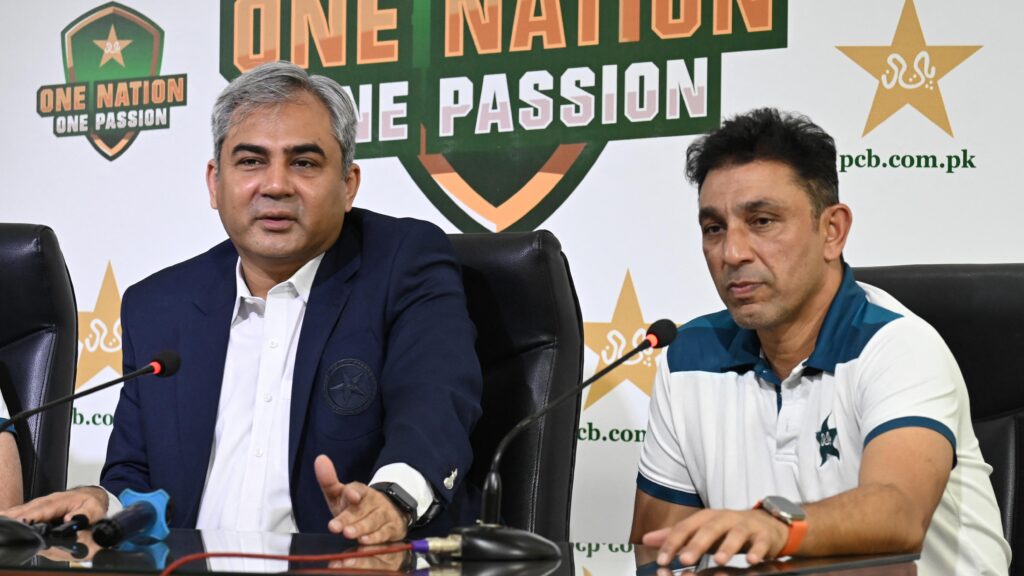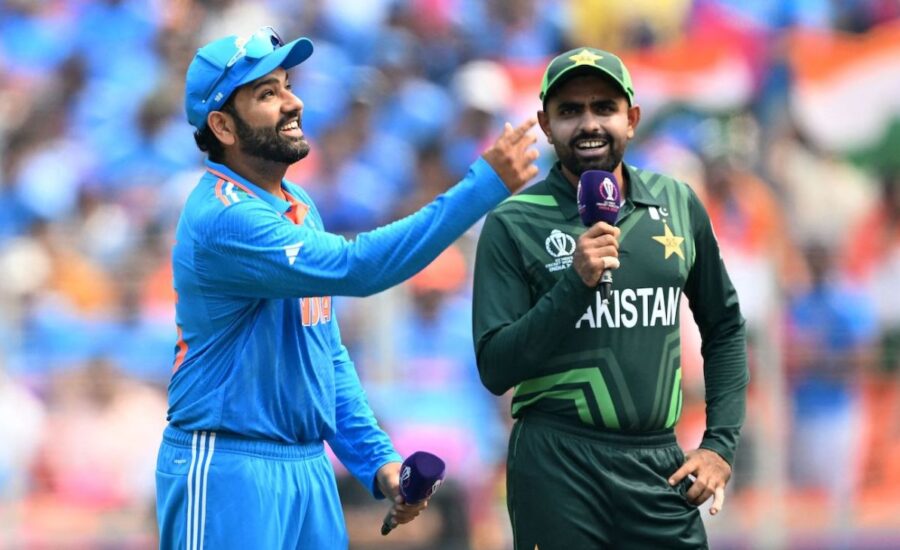Following ICC’s communication to PCB regarding India’s reluctance to visit the nation for the Champions Trophy next year, Pakistan Cricket Board chairman Mohsin Naqvi began discussions with top government officials on Sunday to determine the next steps.
“It is unacceptable because India has no justification for refusing to send its team to Pakistan once more.”
The official stated, “We have already assured the ICC of all the best security arrangements for all teams, including India, and preparations for the event are on schedule.”
The official acknowledged that Pakistan would lose money if a firm stand is taken to boycott all games against India. However, he also stated that they are ready for such a scenario.
Pakistan’s government is rumoured to have ordered the PCB to refrain from playing India in any ICC or other multi-team competitions, beginning with the Champions Trophy, until the Indian government alters its rules.
It has also been stated that if Pakistan chooses to boycott any future sporting interactions with their neighbours, they may bring up the issue of India’s political involvement with the International Olympic Committee (IOC).
Pak stalwarts are disappointed.
The decision by India further infuriated Pakistan’s cricket fraternity, as former Test captain Rashid Latif urged the PCB to issue a strong statement.
“Enough is enough. “This decision by India is purely political and should be unacceptable in all sports, including cricket when all teams are playing in Pakistan without any issues,” Latif stated.
Javed Miandad, a former Test captain, demanded that games against India be boycotted.
The fact that this is taking place is absurd. As we have demonstrated, Pakistan cricket would not just endure but thrive even if we never play India,” he remarked.
“I’d like to see how the ICC events generate revenue when there aren’t any matches between India and Pakistan,” Miandad continued.
Inzamam ul Haq, a former Test captain, too voiced his dissatisfaction.
“They are denying cricket this momentous occasion.” The Indian squad in Pakistan is not in danger. They would receive the most excellent hospitality here,” he remarked.
Since the 2008 Asia Cup, India has yet to send a cricket team to play in Pakistan.
Nonetheless, Pakistan has visited India for the T20 World Cup 2016, a bilateral white-ball series in 2012–13, and the 50-over World Cup last year.
According to former Test cricketer Mohsin Khan, sports and politics should never be combined.
Does the Indian government think that its team in Pakistan is in danger? However, I would suggest maintaining composure before making any decisions,” he said.
Any match between India and Pakistan, two fierce rivals with a long history of cricket competition, is eagerly anticipated by cricket fans worldwide. However, India’s refusal to play in Pakistan has sparked heated reactions, reigniting the cricket debate amid recent political tensions. Prominent Pakistani politician Mohsin Naqvi expressed annoyance, describing India’s move as “unacceptable.” This article examines the dispute’s social, political, and historical underpinnings and the effects this ruling has had on diplomatic ties and cricket fans alike.

The Cricket Rivalry Between India and Pakistan: Its Historical Background
In cricket, India and Pakistan have a storied rivalry. Beyond the sport itself, it has drawn attention from all over the world. India and Pakistan have cultivated one of cricket’s most intense and renowned rivalries since their first game in 1952. Their games frequently represent more than just sports; they also carry a sense of pride and passion for their country. However, political issues have often affected their cricket relationship, resulting in uneven bilateral series.
India’s Position on Not Playing in Pakistan
India has refused to play in Pakistan for several reasons, chief among them being security and political disagreements. Because of the regional security situation, the Indian government has voiced concerns over player safety. Indian officials contend that their players’ safety cannot be jeopardised, particularly in light of the tense political relationships between the two countries.
India’s Refusal and Pakistan’s Response
Pakistan has been outspoken in its disappointment at India’s rejection. Several authorities, including Mohsin Naqvi, denounced the move as harmful to sports diplomacy. Pakistanis’ general dissatisfaction with what they see as the politicisation of cricket is reflected in Mohsin Naqvi position. The Pakistani audience, who feel cheated out of seeing a big cricket match on their home pitch, has found resonance in this sentiment.
Effect on Two-Way Communication
The cricket issue reflects the decades-long hostilities between India and Pakistan. The current cricketing stalemate adds to the many ups and downs in the two nations’ bilateral relationship. Some view India’s refusal to play cricket as an additional pressure on diplomatic ties, making attempts to repair relations more difficult. Cricket is a symbol of diplomatic engagement.
Cricket’s Place in India-Pakistan Relations
India and Pakistan’s diplomatic relations have frequently involved cricket. “Cricket diplomacy” has previously been used to foster better ties. There were times of goodwill brought forth by iconic series, including Pakistan’s 2004 tour of India. But this promise appears to have been overshadowed by recent political tensions, underscoring how difficult it has become for the two nations to keep politics and sports apart.
Pakistan’s assurances and India’s security concerns
Given the residual memories of past tragedies, India’s top priority is the safety of its players. But Pakistan has done a lot in the last few years to make sure visiting teams are safe. Pakistan has been eager to guarantee safe playing conditions for visiting countries, from increased stadium security to additional government-backed procedures. This current standoff, however, results from India’s continued scepticism.
Effect on ICC Events and the Asian Cricket Council (ACC)
The ACC and ICC, the regulatory organisations that supervise cricket in Asia and elsewhere, will be more significantly impacted by the impasse between India and Pakistan. Tournament schedules and logistical issues arise when two major cricketing nations cannot agree on playing conditions. The forthcoming Asia Cup and other ICC competitions, which rely on both sides’ participation, may also be impacted by tensions.
Public Opinion in Both Nations
Cricket fans in both countries feel a mixture of disappointment and rage due to the rejection. While Indian supporters lament losing another opportunity to see their side play Pakistan, Pakistani supporters feel cheated that a historic rivalry is not being played on their territory. This disparity illustrates how ingrained cricket is in both nations’ cultures.
The Sponsorship and Financial Repercussions
The absence of India-Pakistan matches has an impact on the economy in addition to fans. During these games, sponsors and broadcasters frequently experience increased revenue and viewership. Both cricket boards might lose much money without these matches because sponsorship agreements and television rights often depend on the expected high viewership.
Remarks from Experts and Icons in Cricket
Numerous cricketing greats and commentators have expressed their opinions on the matter, each with a unique viewpoint. While some contend that politics shouldn’t affect sports, others know the security risks. Legends of cricket have pushed both countries to reach a compromise, arguing that spectators worldwide should be able to witness these historic matches.
Possible Remedies and the Way Ahead
Playing at a neutral location is one viable remedy that has gained popularity. Both nations might handle security issues while preserving the spirit of the competition by selecting a neutral site. Establishing multilateral agreements with stringent security guarantees is an additional choice that can facilitate communication between the two nations.
The Reasons Behind Cricket Fans’ Disappointment
Cricket fans look forward to every India-Pakistan match, making it one of the most anticipated contests. Fans are disappointed that politics still gets in the way of this rivalry. These sports have a cultural and emotional value that goes beyond the pitch. Thus, their absence causes annoyance and melancholy.
Would Neutral Locations Help?
When direct visits are not feasible, neutral sites have frequently proven to be a good substitute in cricket. India-Pakistan matches have previously been held in nations like the United Arab Emirates and England. Thanks to this agreement, both countries can now play without additional political pressure, A neutral location could provide a short-term fix but can’t replace performing in one’s native country.
In conclusion
The present cricket dispute between Pakistan and India serves as a reminder of how difficult it is to keep politics and sport apart. The fact that Mohsin Naqvi deemed India’s reluctance to play “unacceptable” highlights the long-standing hostilities between the two countries. Finding a solution is crucial for both cricket and the potential for diplomatic advancements. Fans can only hope this cherished rivalry will eventually make a comeback on the pitch in the interim.
